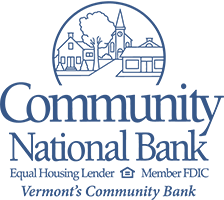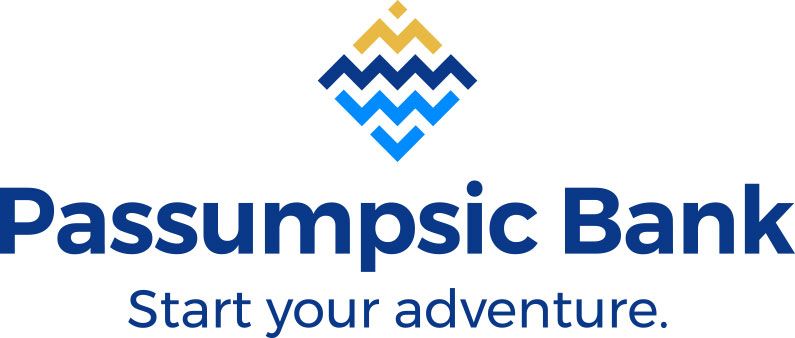Ways to Help H.O.P.E.
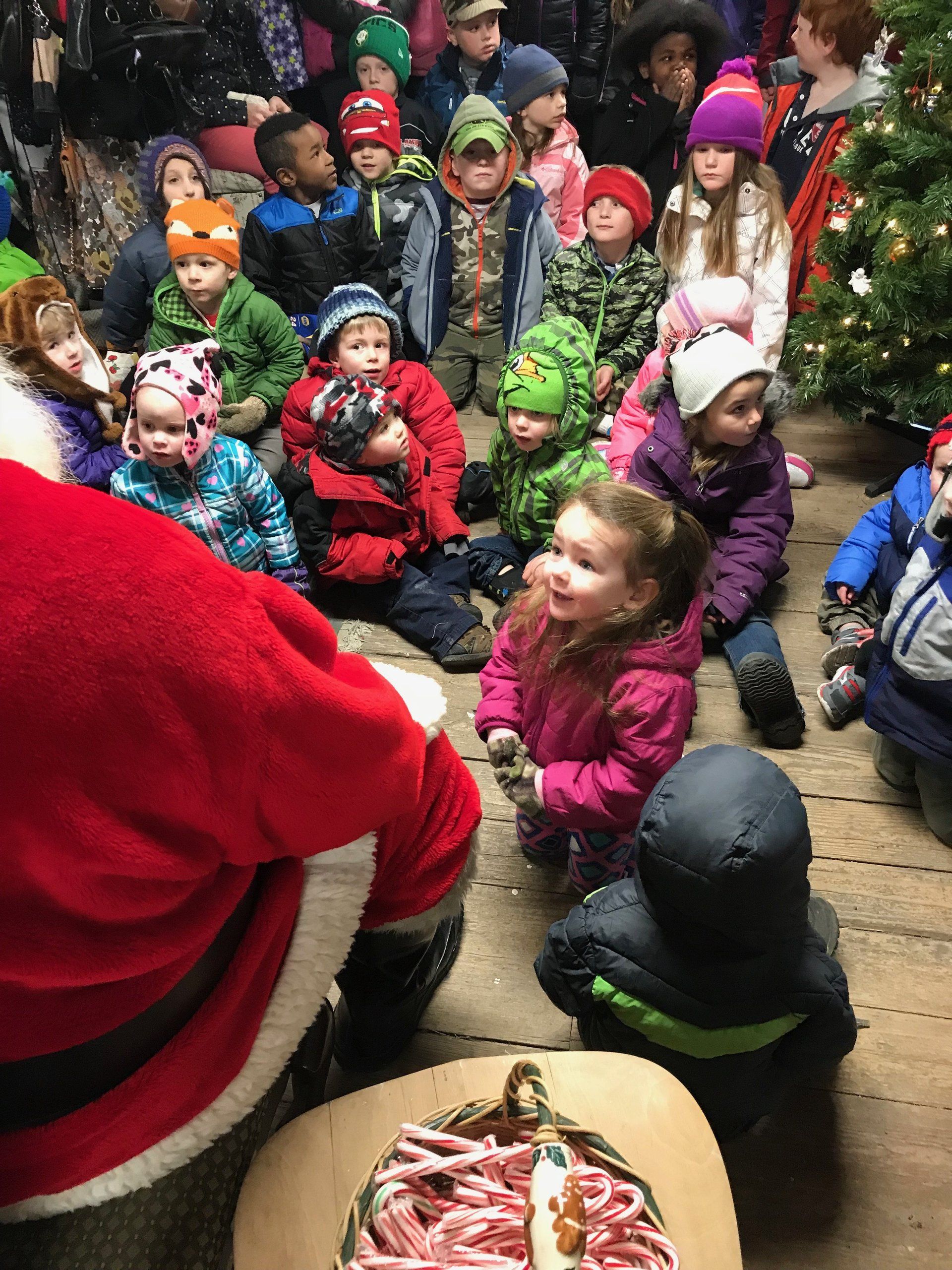
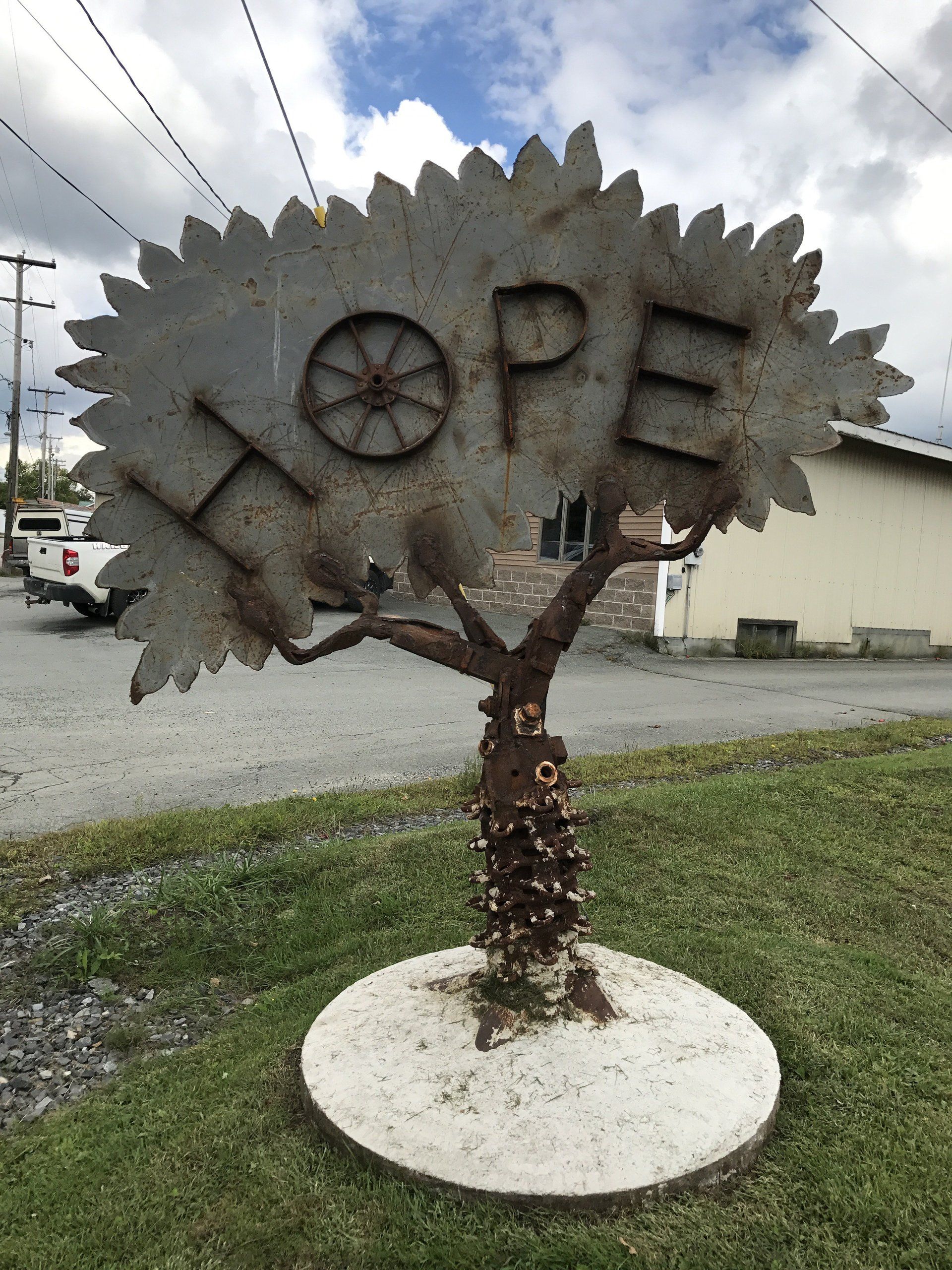
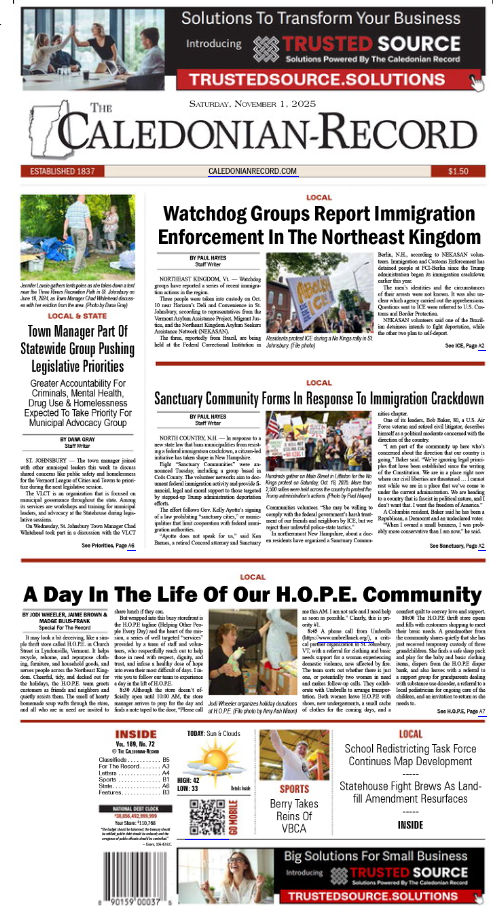
To read the article A Day In the Life of Our H.O.P.E. Community,
click here for a pdf version.
For H.O.P.E.'s online version of the article followed by a QR code to our online fundraising campaign on Zeffy, scroll down.
A Day in the Life of Our H.O.P.E. Community
Byline: Jodi Wheeler, Jaime Brown & Madge Buus-Frank
It may look a bit deceiving, like a simple thrift store called H.O.P.E in Church Street in Lyndonville Vermont. It helps to recycle, re-home and repurpose clothing, furniture and household goods and serves people across the Northeast Kingdom. Cheerful, tidy, and decked out for the holidays the H.O.P.E. team greets customers as friends and neighbors and quietly assists them. The smell of hearty homemade soup wafts through the store and all who are in need are invited to share lunch if they can.
But wrapped into this busy storefront is the H.O.P.E tagline (Helping Other People Every Day) and the heart of the mission, a series of well targeted “services” provided by a team of staff and volunteers, who respectfully reach out to help those in need with respect, dignity, and trust, and infuse a healthy dose of hope into even their most difficult of days. I invite you to follow our team to experience a day in the lift of H.O.P.E.
8:30 Although the store doesn’t officially open until 10:00 AM the store manager arrives to prep for the day and finds a note taped to the door, “please call me this AM. I am not safe and I need help as soon as possible.” Clearly this is priority #1.
8:45 A phone call from Umbrella (https://www.umbrellanek.org/) a critical partner organization in St. Johnsbury VT) with a referral for clothing and basic needs support for a woman experiencing domestic violence now affected by fire. The team sorts out whether there is just one, or potentially two women in need and makes follow-up calls. They collaborate with Umbrella to arrange transportation. Both women leave H.O.P.E with shoes, new undergarments, a small cache of clothes for the coming days, and
a comfort quilt to convey love and support.
10:00 The H.O.P.E thrift store opens and fills with customers shopping to meet their basic
needs. A grandmother from the community shares quietly that she has just received
temporary custody of three grandchildren. She finds a safe sleep pack and play for baby
and basic clothing items, diapers from the H.O.P.E diaper bank, and also leaves with a referral to a support group for grandparents dealing with substance use disorder, a referral to a local pediatrician for ongoing care of the children, and invitation to return as she needs to.
10:15 We are delighted to see our local “egg lady” who tends 45+ chickens and provides eggs
to H.O.P.E on a weekly basis. She is joined by two local gardeners who bring bags of
apples, squash, and beets. In addition to donations H.O.P.E supported improved nutrition by securing a grant from the Vermont Food Bank Grant, Vermonters Feeding Vermonters to purchase three CSAs from local farmers. They hosted a vibrant Farmer's Market in our parking lot weekly throughout the summer, and developed “Budget Bites” a weekly recipe and tasting program to help our community learn to enjoy, cook and store healthy foods.
10:30 A middle-aged man is brought to the store by his stepfather, who says he needs help.
We sense privacy is required and find a safe space to talk. We learn that flooding-related job loss has escalated household violence, and this man states “I was kicked out and have nothing but the shirt on my back and a broken heart.” He gently lifts his shirt to reveal healing knife wounds that may be infected. We help him access medical care urgently. He later comes back for a household package and plans to live in his neighbor’s deserted camper. H.O.P.E provides an emergency food package, basic cooking supplies, and a clothing voucher and the invitation to seek alcohol counseling and employment and housing support through other collaborating H.O.P.E agencies like NECKA (https://nekcavt.org/).
11:00 Two elderly female shoppers gravitated to the newly remodeled food pantry. We
shared our mission; they were impressed with the new “client choice” model where clients can shop for themselves expressing both surprise and delight! They were sure “others needed it more than we do.” However, we learned their social security income was very low, (30% of the needs requirement), and both sheepishly admitted that they had been rationing food to make it stretch. We encouraged them to complete the quick screening and sign-up, and we explained that we are an emergency Vermont Food Pantry (https://www.vtfoodbank.org/ ). To date much of our food is supported by government funds and tax dollars. These friends have become monthly customers and love to share recipes and stories with other customers. They now meet for a double solitaire game weekly and are sharing books, yarn, friendship, and laughter, a great anecdote for the epidemic of loneliness many are facing. Read more at: (https://www.cdc.gov/mmwr/volumes/73/wr/mm7324a1.htm).
11:45 The Thursday soup tradition continues! Our food pantry is full of community members
of all kinds, sharing the broccoli cheese soup, laughter, and conversation. One 10-year-old boy asks for a “small taste” and then upgrades to a full bowl. He hangs out in the pantry asking to taste other produce, and consumes a red pepper, three apples, four carrots and more. Before leaving the store, he gently requests some soup to take home because, “I don’t know if there will be supper tonight.” We are able to provide soup, help his mother enroll in the emergency food program before leaving, offer clothing vouchers to prepare for winter, and the recipe and ingredients to make the broccoli cheese soup at home.
.
1:30 A 30ish young lady comes to H.O.P.E with her case worker, who has helped her secure
not just one but two jobs locally. She needs specific clothes and shoes to comply with
the dress code and H.O.P.E helps with a clothing voucher. She also will be moving into an apartment, living independently for the first time ever and H.O.P.E provides her with a year-long certificate for a household package to help with the basics. She leaves that
day with a like new mattress, linens, and cooking package as well as a big dose of
encouragement and celebratory cupcakes for her progress towards independence.
1:45 A family of five arrives visibly worn, tired, and in need of showers. We learn that they
have been living “off grid” in a camper, and also have limited transportation. We assist with food, clean clothing, and laundry support. Referral to local agency (https://nekcavt.org/) for housing and economic assistance, and school enrollment information was provided as well as back packs, shampoo, soap, toothbrushes, and school supplies. While in the store other clients provide tips on local showers and some leads for temporary employment.
2:00 A regular visitor, called “gentle Jim” arrives at the services at closing time. He has lost
significant weight, and says, “I just can’t eat. We learn that he has been experiencing
daily fevers, severe jaw pain, and refer him for emergency dental care. We encourage
him to come back for food and other assistance when he can and follow-up with a phone call later in the week.
3:50 A family arrives and inquires, “Is Jodi still here?” They share their story of hope and
recovery in great detail, despite the fact it was 17 years ago. They have survived floods,
domestic violence, substance use and cancer and are proud to share that they fought
their way back. H.O.P.E helped them with basic food, an outfit for a job interview, and
referrals for housing support helped them stabilize. Their baby, who got diapers and formula from HOPE, is now coming to VTSU-Lyndon as a freshman and will be the first family member ever to go to college. She hopes to study early child development and find a way to help other families along the way. They drop off a modest check, and plan to visit and volunteer in the future. We share hugs, tears, and joy with these “graduates” of the H.O.P.E. family.
3:55 A H.O.P.E board member calls and asks if there is anything we need. The food pantry
shelves are nearly empty, we didn’t get bread this week, and we have more
requests for outdoor gear than we can grant. We also have no meat in our freezer, and
150 back packs to fill. She promptly jumps to action, delivers a large donation of farm-fresh organic chicken, and makes a $10,000 donation to buy snow pants so kids can play outside for recess.
4:00 Our local school counselor drops by to pick up 5 boxes of food for HOPE’s school back pack program. In this year alone our backpack program needs have surged from more than doubled. Since school started (September 1) we have partnered with 10 regional school districts to get food to 1019 children, at the cost of $50,950 to date.
Teachers are a critical link in the program and often come with a “wish list” of critical student needs requested by other teachers, including winter coats, mittens, boots. Two teenage girls, who are self-conscious about body odor, need changes of clothes. The floods left their families without bathing facilities, and now the well is dry in the drought season. We learn that a growing number of kids now shower and do laundry at school, so that they can then concentrate on learning. Long before and after school officially opens and closes the dedicated teachers are hard at work on behalf of families in need all over the NEK.
4:30 Despite the busy day the H.O.P.E. leadership team and staff are huddling to “run the
list” and be sure we have met the needs that were presented in the past few days. Leaders now go into a formal budget meeting to review program stats and dollars needed to fill empty back packs, supplement the food shelf, and support upcoming programs like holiday meals and Toys of Tots. They brainstorm about how to garner more community awareness, support, and monetary donations to serve the exponential growth in services that we are experiencing in these challenging economic and uncertain times.
4:55 And just when the team is preparing to close the store, a desperate family comes to the door. They need an emergency food package to get through the night. They have been
hesitant to come in before, but despite working three jobs, they are struggling. This
week they needed to pay “back” rent to keep their housing secure. They have no food in
the house until SNAP benefits kick in. And they are worried about future Women, Infants & Children (WIC) benefits, which is their primary source for milk, formula and nutrition support for mother and baby. The team pulls together to help with the basics, and then adds this family's worries to the already known list of other diminishing community services to the H.O.P.E “worry list” . We reinvigorate plans to collaborate with other agencies and community partners in the coming weeks to write grants, seek donors, and volunteers, and share resources and smart strategies for success.
Although we leave exhausted, we pause briefly to celebrate the trust of our community, those that we have served today, and to recommit to spreading the word about the power of helping other people every day!
H.O.P.E . Mission and Impact by the Numbers
H.O.P.E is a private, locally based and community engaged 501-(3) © non-profit whose mission is to provide basic support and services to those in need in a respectful and compassionate manner. We have developed a very innovative and transformational service model to enhance the vitality of our entire community and are seen as a safe, trusted and valuable community partner.
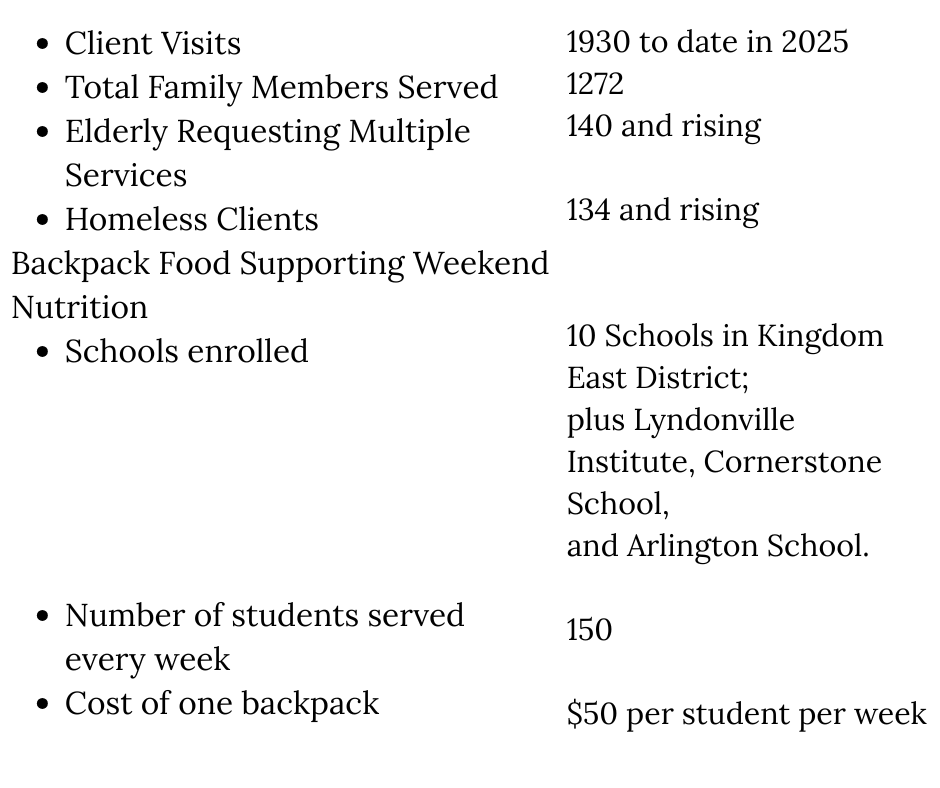
The total value of backpack items (projected) for the 2025-2026 school year will be in excess of $300,000.
How Can You Help?
Now more than ever H.O.P.E. needs your help! Every dollar, every donation, every volunteer action adds up to support those most in need and your100% of your donations stay directly in the Northeast Kingdom.
The H.O.P.E . model Is not a “hand-out”; most importantly it is a “hand up”. We help those in need to identify what they need to both meet their daily needs, but also to enhance their nutrition, health, housing, employability, and to move from crisis to stability. Once basic needs are met, many can then join the H.O.P.E. community in giving back to others strengthening the well-being of all in the brave Northeast Kingdom!
We have an urgent need for the following to support our program and services:
- Individual Monetary Donations (see QR Code)
- Estate Gifts and Endowments*
- Business Sponsors
- Round-up Checkout Programs at Local Store
- Service Club Donations
- Adopt a Backpack Program
- Adopt a Diaper Bank Program
The needs are urgent and frankly have never been greater. The time for action is now!
If you would like to speak with a H.O.P.E. team member about how you can help, please reach out for a tour and an opportunity to collaborate, discuss a general or targeted donation, and/or explore an estate gift or endowment.
With Grace & Gratitude for Those Already Helping!
Jodi Wheeler Jaime Brown
H.O.P.E. Executive Director H.O.P.E. Operations Manager







